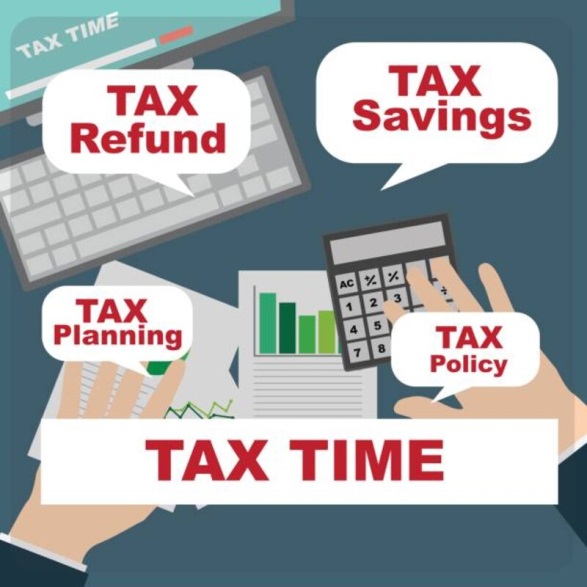Navigating the Terrain: The Advantages and Disadvantages of Tax Lien Investing
Dec 21, 2023 By Susan Kelly
Tax lien investing, a lesser-known avenue of investment, presents a unique blend of opportunities and challenges. It involves purchasing tax liens from governmental bodies, which allows the investor to potentially acquire properties at fractions of their market value or earn substantial interest rates. However, it's not a path devoid of risk. A thorough understanding of the nuances involved, from knowing the intricacies of real estate law to being patient with the often slow and bureaucratic process, is essential. This guide will delve into the pros and cons of tax lien investing, providing insights and strategies to navigate this complex terrain.
How tax lien investing works?
Tax lien investing involves the purchase of tax liens against properties that have unpaid taxes. These liens are issued by a governmental body, such as a county or municipality, to collect the overdue property taxes. The investor pays the outstanding taxes on behalf of the property owner and in return, receives a tax lien certificate as proof of their investment.
The certificate serves as a legal claim against the property, and the investor is entitled to receive interest on their investment once the delinquent taxes are paid. If the property owner fails to pay the taxes within a specified timeframe, the investor can foreclose on the property and take ownership.
Advantages of tax lien investing

High potential for returns
One of the most significant advantages of tax lien investing is its high potential for returns. Depending on the state, investors can earn interest rates ranging from 8% to 50%, which far surpasses traditional investments such as stocks and bonds.
Acquisition at discounted prices
Investors also have the opportunity to acquire properties at discounted prices through tax lien investing. In cases where the property owner fails to pay their taxes, the investor can foreclose on the property and acquire it at a fraction of its market value.
Low entry barriers
Tax lien investing is accessible to individuals with different financial backgrounds. Some states allow investors to purchase liens for as little as a few hundred dollars, making it an attractive option for those looking to enter the real estate market without significant capital.
Low competition
Compared to other forms of real estate investment, tax lien investing has relatively low competition. Many investors are unaware of this avenue or deterred by the complexities involved, making it an opportunity for those willing to do their due diligence.
Secured investment
Tax liens are considered secured investments since they have a legal claim against the property. In cases where the investor forecloses on the property, they have a higher chance of recouping their initial investment.
Diversification
Adding tax liens to your investment portfolio can provide diversification and reduce risk. In times of economic downturns, when other investments may falter, tax liens often remain stable and continue to generate income for investors.
Potential for property ownership
In some cases, investors can gain ownership of the property through tax lien investing. This presents an opportunity to generate rental income or sell the property for a profit.
Disadvantages of tax lien investing

Legal complexities
Tax lien investing involves intricate legal processes that vary from state to state. Investors must have a thorough understanding of real estate laws and regulations to navigate this terrain successfully.
Slow process
Tax lien investing is not a quick way to make money. The process of acquiring a property through tax liens can take many months or even years, making it unsuitable for investors looking for immediate returns.
Property condition
In cases where the investor obtains ownership of the property, they may find that it's in poor condition, requiring significant investments to make it profitable.
Tax lien redemption
There is always a risk that the property owner will pay their taxes and redeem the tax lien, resulting in lower returns for the investor. This risk increases as the interest rate on the lien decreases over time.
Navigating the Terrain: Strategies for Success
Conduct thorough research
Before delving into tax lien investing, it's crucial to conduct extensive research on the state's laws and regulations. Each state has its own unique guidelines, redemption periods, and interest rates, so understanding these nuances is essential for success.
Have a clear investment strategy
It's essential to have a clear investment strategy in place before purchasing any tax liens. This can include setting a maximum interest rate to pay for liens, targeting specific types of properties or locations, and having a plan in case of lien redemption.
Be patient
Patience is key when it comes to tax lien investing. The process can be slow and bureaucratic, with many steps involved before acquiring a property. Being patient and understanding the timelines is crucial for success.
Diversify your portfolio
As with any investment, diversification can help mitigate risk. Consider investing in tax liens from different states or targeting properties with varying levels of risk to create a balanced portfolio.
Conclusion
Tax lien investing offers a unique opportunity for investors to potentially earn high returns and acquire properties at discounted prices. However, it requires patience, thorough research, and a clear investment strategy to navigate successfully. By understanding the potential advantages and disadvantages of tax lien investing and implementing sound strategies, investors can make informed decisions and potentially see significant returns on their investments. So continue exploring this avenue of real estate investment with caution and diligence for a chance to add diversity and growth to your portfolio.








